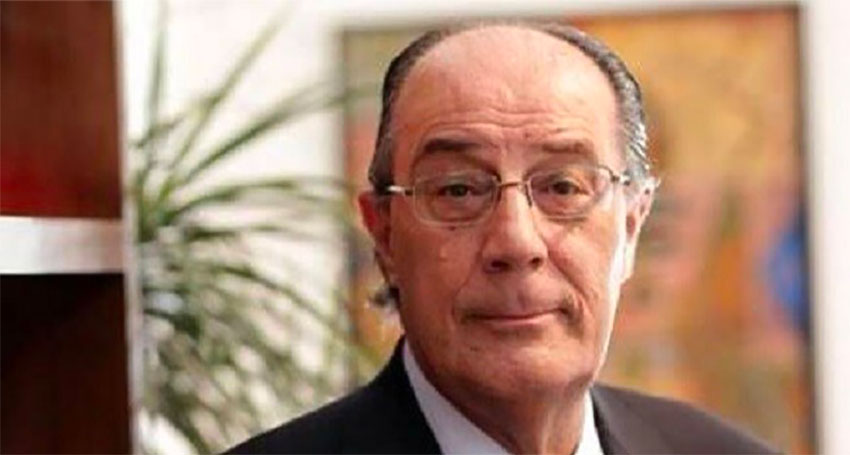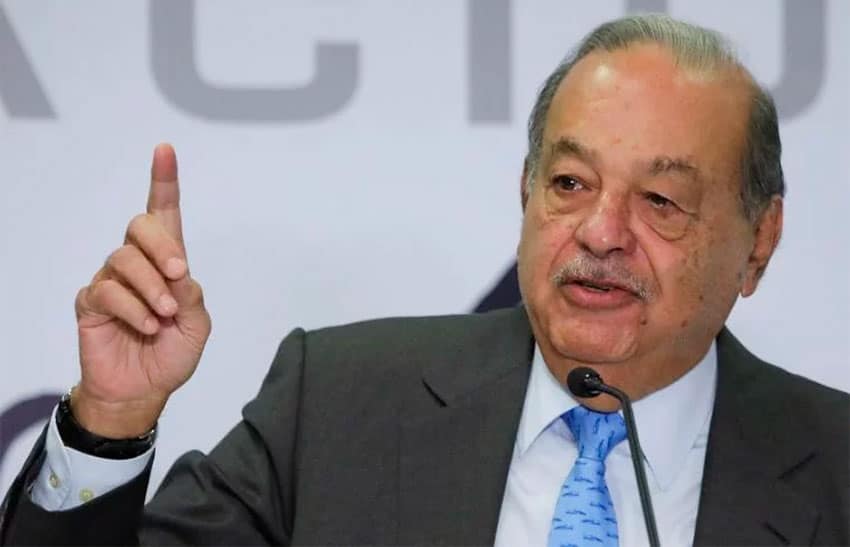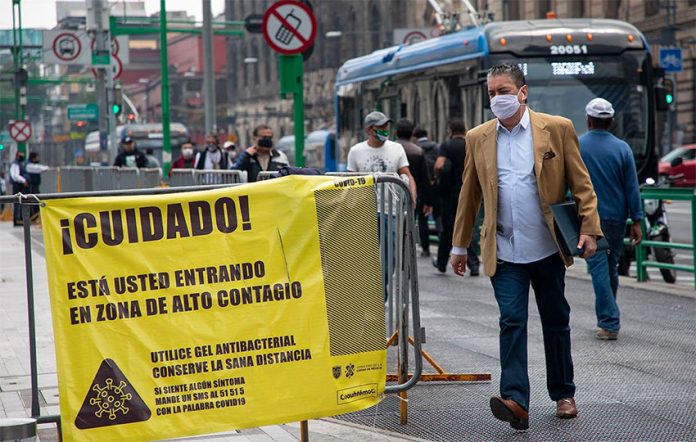The alarm bells started ringing in March. Coronavirus still felt like a distant phenomenon in Mexico, not something to cause the jet set to fret. But then three top businessmen went down with it after flying home from the U.S. ski resort of Vail by private jet, and the panic began.
The governor of the western province of Jalisco, home of tequila, quickly called for 400 people who had traveled to Vail and nearby Denver on two chartered airlines to self-isolate. Before long, the governor of the central state of Puebla was describing Covid-19 as a risk for the rich, saying “we poor are immune.”
Now, as even the most expensive private clinics have filled up, the realization has sunk in among the privileged that “there’s no money or influence that can get you a hospital bed,” as the head of one media group puts it, describing the anxious mood emanating from her phone chat groups. “They’re worried for their health,” she says. “Many [of Mexico’s millionaires] are no longer so young. They’ve locked down more than those without so much to lose.”
There are fears that the true death toll is higher than the thousands officially recorded — and many people are taking precautions. Among the rich it has been a “golden confinement” for many, says María Torres, editor in chief of society magazine Quién, as the wealthy retreated to their second or third homes in the countryside or by the sea.
“I’ve had a number of conversations from beach resorts,” said one consultant who has held Zoom meetings with Hawaiian-shirted executives to the sound of waves crashing in the background. After Vail “they’ve been extremely careful not to expose themselves,” he added. They could see from the example of Jaime Ruiz Sacristán, Mexico’s stock exchange president and the highest profile fatality to date, that money was no protection. He was one of the three who returned from skiing in March with the virus.

Initially, many thought they could simply take refuge on their yachts, says Adolfo Nieto, commercial director of Aerolíneas Ejecutivos, which sells and leases luxury boats and private planes. But “that dream didn’t last long” as the authorities soon closed lakes and seas to recreational craft.
After retreating instead to their holiday homes, some almost seem to be enjoying it. The consultant says: “They’d have no problem staying locked up for six months.” With live-in staff “it reminds me of colonial times — there’s absolutely no need to go out.”
While the 1% may be in isolation, they are not idle. Carlos Slim, the phone magnate and Mexico’s richest man, whose cousin contracted Covid-19 in Vail, sealed a contract to build part of the Maya Train that President López Obrador says will help develop the country’s poor southeast. He also donated 1 billion pesos (US $42 million) to buy ventilators and medical equipment.
But as Latin America’s second-biggest economy reels — more than half a million jobs were lost in April alone and analysts expect gross domestic product to contract this year by about 8% — Mexico’s rich have also felt the pain personally. The fortunes of Mexico’s top 1% of earners account for an estimated quarter of total incomes.
According to Forbes, no one in Mexico has been hit more than Slim, who had lost $12 billion by late May. Once the world’s richest man, he now ranks 17th with a net worth of $51.5 billion. But that is more than Mexico’s other billionaires put together and Slim’s losses this year are more than the fortune of Mexico’s next richest, Ricardo Salinas.
Many top Mexican businesses have turned their attention to repurposing factories to produce hand sanitizer, as Corona brewer Grupo Modelo has done, or to charitable efforts like Slim and Germán Larrea, head of a mining and rail conglomerate, who has donated a hospital.

But not all have let the crisis change their plans. Salinas, a media, banking and retail magnate, has argued vocally for business as usual — especially because the informal sector is half of Mexico’s economy and does not have the luxury of a safety net in locking down. He appealed in vain for the country not to grind to a halt. He kept open his Elektra shops, which sell white goods in lower-class areas, saying that with economic paralysis “we’re not going to die of coronavirus but of hunger.”
But as the new normal takes hold, many of the wealthy are thinking of staying in their second homes for good — magazine editor Torres says enrollments at a private school in the lakeside retreat of Valle de Bravo near Mexico City have rocketed. The rich are starting to enjoy the fruits of their fortunes.
“We see high net worth individuals who previously hadn’t considered private jets, despite having the means, now seeing them not as luxury but as the only option,” says boats and planes vendor Nieto. In the 2008-09 recession “the first thing they sold were their toys;” now jets are “a tool they won’t get rid of.”
As one major citrus producer, who has been flying by private jet to meetings across the country and the U.S., puts it: “With coronavirus, it’s just safer.”
© 2020 The Financial Times Ltd. All rights reserved. Please do not copy and paste FT articles and redistribute by email or post to the web.
